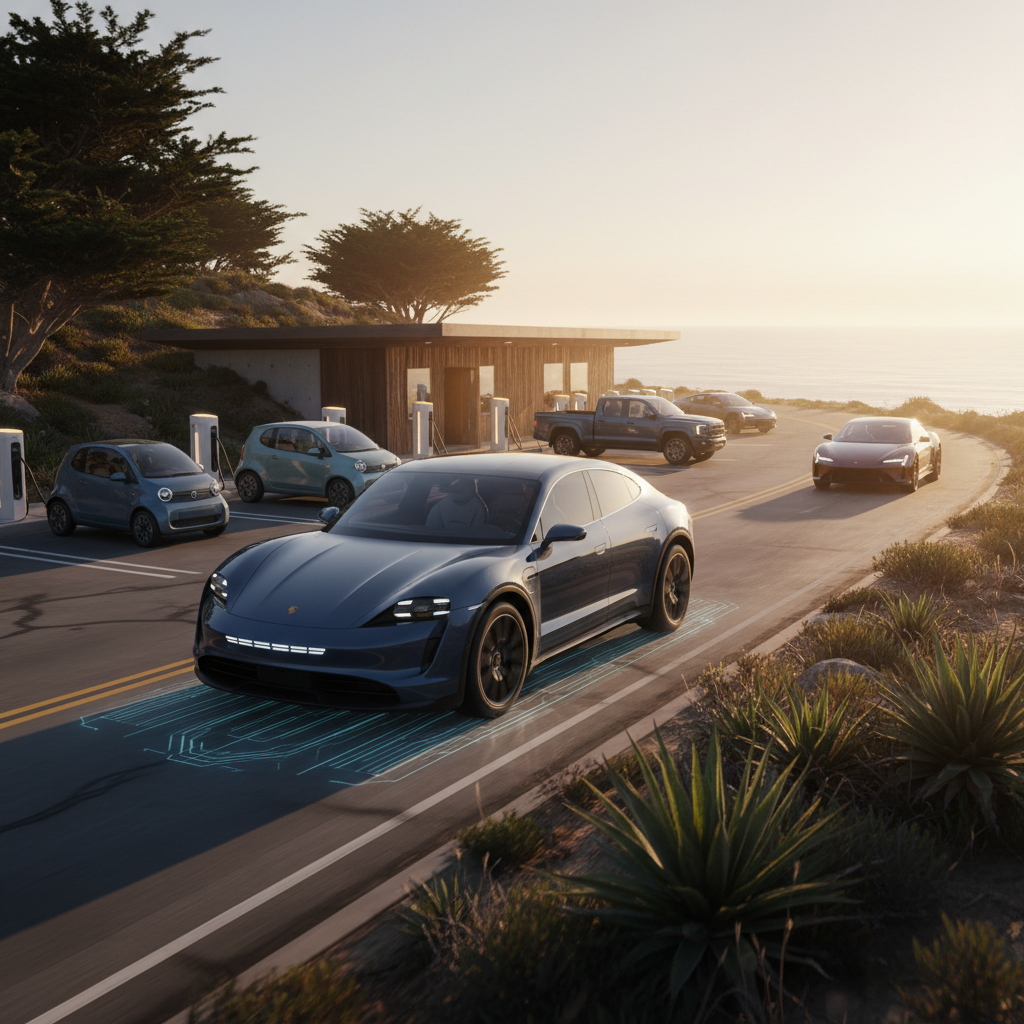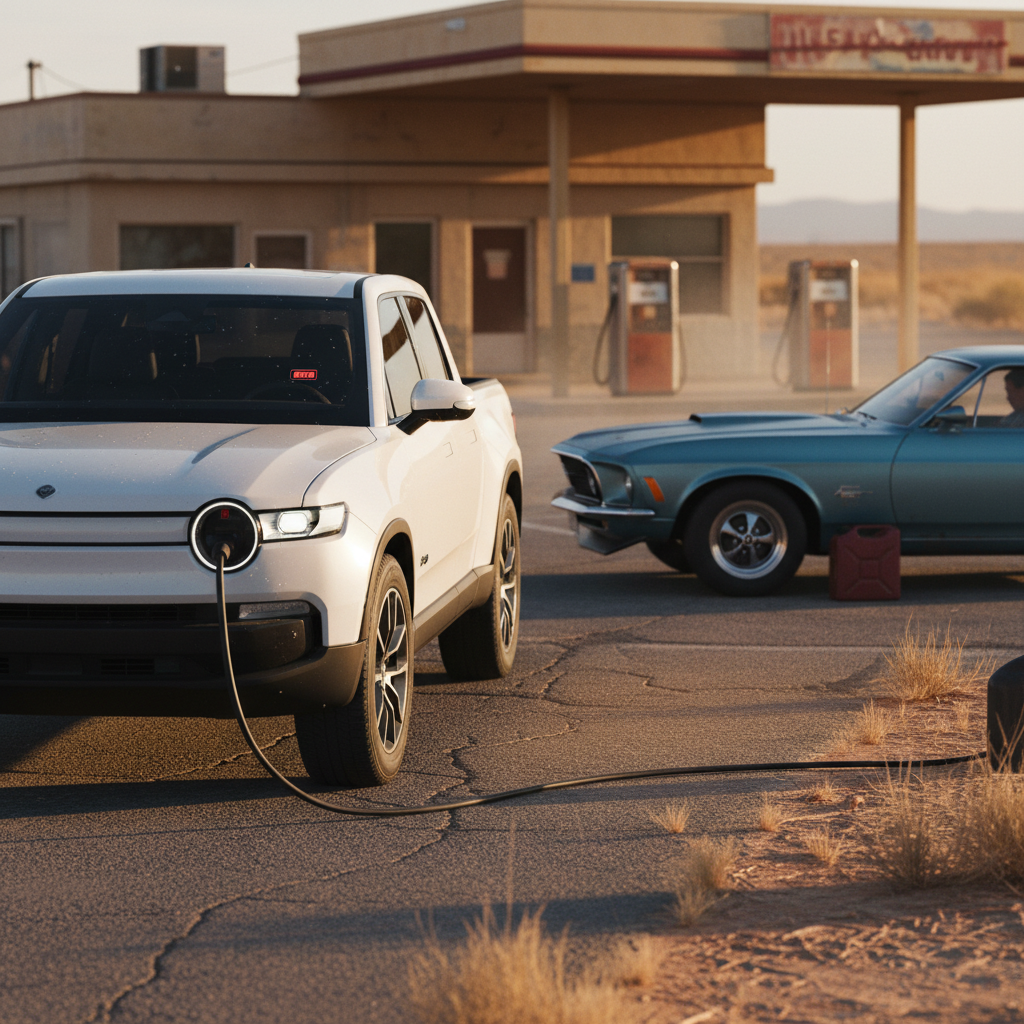If you’ve been Googling “Tesla Model Z price”, you’ve probably run into breathless headlines, Sci‑Fi renderings, and a whole lot of guesswork. Let’s sort out what’s real, what’s rumor, and, most importantly, what it means for you if you’re thinking about a high‑performance electric car in the next few years.
Quick truth check
Does the Tesla Model Z actually exist yet?
Before you can talk seriously about Tesla Model Z price, you have to ask a more basic question: does the car itself exist? Officially, Tesla’s current and confirmed lineup includes Model S, Model 3, Model X, Model Y, Cybertruck, and Semi, plus the long‑promised second‑generation Roadster that’s still in development with updated timing for the late 2020s. There is no Model Z on Tesla’s official product list or order site today.
So where is all the Model Z buzz coming from? A mix of: - Speculative blog posts that treat artist renderings as future products - YouTube videos that blend real Tesla tech with imagined model names - Articles that reference supposed “leaks” about a tri‑motor halo car and attach the Z badge to it In other words, Model Z is a handy label for people imagining the next ultra‑quick Tesla, but it isn’t a production car you can configure or price today the way you can a Model S or Model 3.
Don’t confuse it with Tesla’s real next-gen plans
Tesla Model Z price rumors: what’s out there online
Even though the car isn’t official, that hasn’t stopped the internet from publishing highly specific‑sounding numbers. Depending on which corner of the web you land in, the “Tesla Model Z price” is described as anything from a relatively attainable performance sedan to a six‑figure hyper‑EV.
Common Tesla Model Z price rumors (and what to make of them)
Here’s how the most popular numbers stack up at a glance.
Around $80,000–$90,000
Some blogs pitch Model Z as a step above Model S Plaid in performance, but just below it in price, roughly $80k–$90k as a base.
Reality check: That would undercut the Model S Plaid while supposedly offering more tech, which doesn’t line up well with how Tesla usually positions its halo products.
$89,000 starting, $140,000+ loaded
Other outlets reference an $89,000 "starting" Model Z with fully optioned versions nudging $140,000 or more, describing it as a true halo super‑EV.
Reality check: That would place Model Z in the neighborhood of exotic EVs and a future Roadster, plausible for a wild concept, but still speculation.
Well over $150,000
A few more sensational pieces imagine a track‑focused, limited‑run Model Z priced at $150,000+, leaning into hypercar territory.
Reality check: At that point you’re competing directly with the forthcoming Roadster. Tesla is unlikely to undercut its own announced halo car with an unannounced one.
How to read these numbers
Rumor vs. reality at a glance
How rumored Model Z pricing compares to real Teslas
To make sense of any rumored Tesla Model Z cost, it helps to park those numbers next to cars you can actually buy. Once you do, you’ll notice that most Model Z price talk overlaps heavily with the upper end of Tesla’s existing lineup and the promised Roadster.
Rumored Model Z prices vs. real Tesla performance models
Approximate new‑vehicle price ranges for U.S. buyers in late 2025. Actual pricing varies by configuration, incentives, and timing.
| Vehicle | Status (Nov 2025) | Approx. Price Range (New) | Role in Lineup |
|---|---|---|---|
| Model 3 Performance | In production | $55,000–$65,000 | Entry performance sedan |
| Model Y Performance | In production | $60,000–$70,000 | Performance crossover |
| Model S Dual Motor | In production | $75,000–$90,000 | Luxury long‑range sedan |
| Model S Plaid | In production | $95,000–$115,000 | Ultra‑quick flagship sedan |
| Cybertruck (AWD/Cyberbeast) | In production | $80,000–$110,000+ | Performance pickup/halo |
| Roadster (2nd gen) | Announced, not yet in production | Likely $200,000+ (founder‑level pricing historically) | Future halo sports car |
| “Model Z” (rumors) | Not an official product | $80,000–$150,000+ (entirely speculative) | Imagined ultra‑performance Tesla |
Model Z rumors mostly live in the same financial neighborhood as today’s top Teslas.
If Model Z is priced like a Plaid
If the Model Z ever arrived around Model S Plaid money, say near $100,000, it would have to justify itself as something beyond the Plaid, lighter, sharper, or more exclusive. Otherwise buyers will simply choose the known quantity.
If Model Z is priced like a mini‑Roadster
If it creeps toward $150,000, you’re crossing into the same emotional space as the coming Roadster: dream‑car territory with limited production. At that price, most shoppers will compare it to exotics and dedicated sports cars, not everyday Teslas.
The buyer’s advantage
Who the Tesla Model Z would be for (if it launches)
Let’s play along for a moment and imagine a world where Tesla does roll out a Model Z with a six‑figure price tag. Who is that really for? Not someone just trying to get into their first EV. A car like that targets a buyer who wants outrageous acceleration, track‑day bragging rights, and the latest battery and software tricks, someone who might also be shopping 911s, Taycans, or the eventual Roadster.
- You care about 0–60 times almost as much as monthly payments.
- You’re drawn to halo models, M, AMG, RS, GT, Plaid, "Blackwing" and the like.
- You want something rarer and wilder than a Model 3 or Model Y, even if it’s less practical.
- You’re comfortable with six‑figure car numbers, or have business use that makes it pencil out.
The risk with halo cars
Budgeting for a future EV supercar the sane way
Even if Model Z never makes it past the rumor mill, the urge behind those searches is real: you want to know what it would take to afford a truly special EV. The good news is that the math isn’t mysterious. The same principles that apply to a Model 3 apply to an imaginary Model Z, only with bigger numbers and higher stakes.
A clear‑headed plan if you’re dreaming about a Model Z–type car
1. Set a real monthly number
Forget list price for a second. Decide what you’re truly comfortable spending each month on a car, <strong>all‑in</strong>: payment, insurance, charging, maintenance savings, and taxes averaged over the year.
2. Work backward from financing
Use that monthly figure with realistic finance terms, interest rate and down payment, to see what price range it supports. Recharged can help you <strong>pre‑qualify for financing</strong> on real cars so you’re not just guessing.
3. Don’t ignore insurance on six‑figure EVs
High‑performance EVs can carry noticeably higher insurance premiums. Get a few quotes based on similar cars (Model S Plaid, Taycan, etc.) so you aren’t blindsided later.
4. Think in five‑year chunks, not forever
With how fast EV tech moves, planning to hold a super‑EV for 20 years doesn’t always make sense. Model your budget around a realistic 4–6 year ownership window.
5. Decide where performance stops paying you back
Quick cars are fun; quick cars that wreck your flexibility are not. Define the point where extra speed stops adding real value to your life. That line is different for everyone, but you should know where yours is.
Leverage EV running‑cost savings
Why a used performance EV might make more sense today
Here’s the part most rumor‑mill coverage skips: while everyone debates a hypothetical Tesla Model Z price, the used market is quietly full of cars that deliver supercar‑level shove for far less than six‑figure sticker shock. Late‑model Model S Plaid, Model 3 Performance, and other high‑output EVs are already on their second or third owners.
1. Depreciation has done you a favor
Like most luxury performance cars, top‑trim Teslas tend to lose value fastest in the first few years. Buying used means someone else already paid that premium for being first, while you still get massive performance and modern tech.
2. Real‑world speed vs. fantasy numbers
On the street, the difference between 2.0 and 2.5 seconds to 60 mph is trivia, not transportation. A used performance EV that does the sprint in the low threes will already feel shockingly quick in everyday driving.

Where Recharged fits in
How Recharged helps you shop smarter than the hype
Hype sells ad impressions. It doesn’t necessarily get you into the right car. If you’re drawn to Model Z–style performance but want today’s certainty instead of tomorrow’s rumors, Recharged is built for exactly that gap: transparent, data‑driven used EV shopping.
Shopping for a performance EV with Recharged
What changes when you have real data instead of rumor‑mill speculation.
Battery health, quantified
The Recharged Score Report includes verified battery diagnostics, so you know how much performance and range the pack can still deliver, critical on powerful cars that have likely seen spirited driving.
Fair market pricing
We benchmark every vehicle against the broader market, so you can see whether a Plaid, Performance, or other halo‑trim EV is priced fairly for its age, mileage, and condition.
EV‑specialist guidance
Recharged connects you with EV‑savvy specialists who speak the language of kilowatts and track days, not just trim codes. They’ll help you weigh theoretical cars like Model Z against what’s actually in your price range today.
And because Recharged offers financing, trade‑in and consignment options, and nationwide delivery, you can move from daydreaming about a hypothetical Model Z to actually owning a high‑performance EV, without flying blind on batteries, pricing, or paperwork.

FAQ: Tesla Model Z price and buying decisions
Frequently asked questions about Tesla Model Z pricing
Bottom line: what to do with all this Model Z talk
The search term “Tesla Model Z price” captures a very real itch: the desire for the next big leap in electric performance. But until Tesla itself puts a Model Z on its site with a VIN and a payment calculator, it’s still a story, not a showroom option. The smart move is to use that curiosity as a catalyst to run the numbers on cars you can actually buy today, especially used performance EVs where depreciation and battery transparency can be your best friends.
If and when a Model Z ever materializes, you’ll be ready for it, with a clear budget, real‑world performance expectations, and experience owning an EV that fits your life instead of just your browser history. And if it doesn’t, you may discover you never needed to pay "future‑icon" money to get supercar‑grade acceleration in the first place.



